Follow us at @CNNSport and like us on Facebook
Story highlights
Celtic and Rangers will meet in the Scottish League Cup semifinal this weekend
Game marks the first time Glasgow's Old Firm rivals have met in three years
Some Celtic supporters say the term Old Firm should no longer exist as Rangers were liquidated
Glasgow’s greatest football clubs were once inseparable – bound together by history, ambition and an intense mutual rivalry.
How times have changed in Scotland’s largest city.
Over the last three years Celtic and Rangers have been like strangers in the night as the financial capitulation of Glasgow’s blue half pushed this once mighty pair to opposite poles of the Scottish league system.
The famous Old Firm fixture – that at its best produced moments of majestic sporting theater and at its worst dragged in politics, religious bigotry and vocal support for paramilitary groups like the Irish Republican Army (IRA) and Ulster Volunteer Force (UVF), given the west of Scotland’s close historical links with Northern Ireland – has been absent as a result.
But not for much longer.
Celtic and Rangers meet this weekend in what is sure to be a highly-charged Scottish League Cup semifinal at Hampden Park.
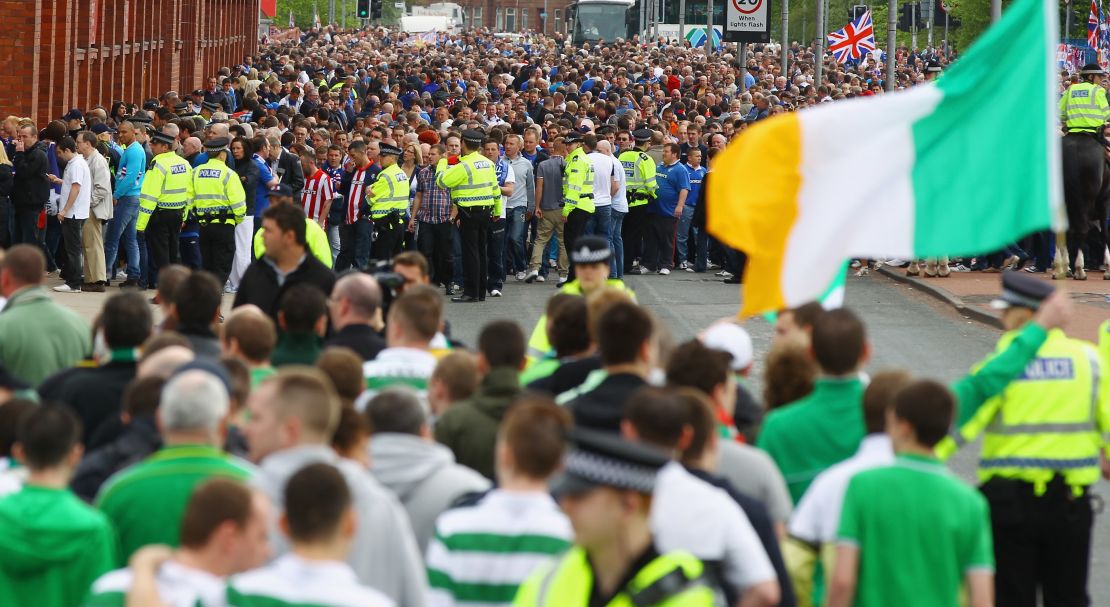
The game is a sell-out and Glasgow’s respective green and blue tribes are abuzz with anticipation. A league above their great rivals, Celtic are overwhelming favorites.
Yet this football-mad city’s once proud sporting passions have tapered in recent years – on the field at least.
Attendances have fallen significantly at both clubs while the quality of player on display is vastly inferior to what was on offer as little as five years ago.
Rangers have also arguably provided as an authoritative guide as is possible in demonstrating how not to run a football club.
Their fans are in revolt, organizing boycotts with regards ongoing boardroom battles and the club’s perilous finances. The Ibrox side required emergency loans from shareholders to pay wages and avoid being wound up only this month.
Protests and picket lines aside, however, a number of supporters told CNN that the dearth of Old Firm matchups and the intense emotions they generate has also contributed to waning interests.
Post Old Firm era?
With hindsight, it’s not difficult to see how things ended up here.
Years of overspending, inept ownership and the catastrophic adoption of Employee Benefit Trusts (EBTs) – a financial vehicle designed to reduce the levels of income and national insurance tax companies pay – saw Rangers implode in spectacular fashion.
The club staggered into administration in early 2012 before winding up a matter of months later, unable to find a buyer willing to take on its imposing debts and a potentially large tax bill from outstanding court cases relating to EBT use. A tribunal later found the majority of these did not break the law although the UK tax authorities are appealing this verdict.
Liquidation saw assets like the stadium, training ground and some player contracts snapped-up by a “newco” Rangers which was then granted entry to the lowest tier of the Scottish league system.
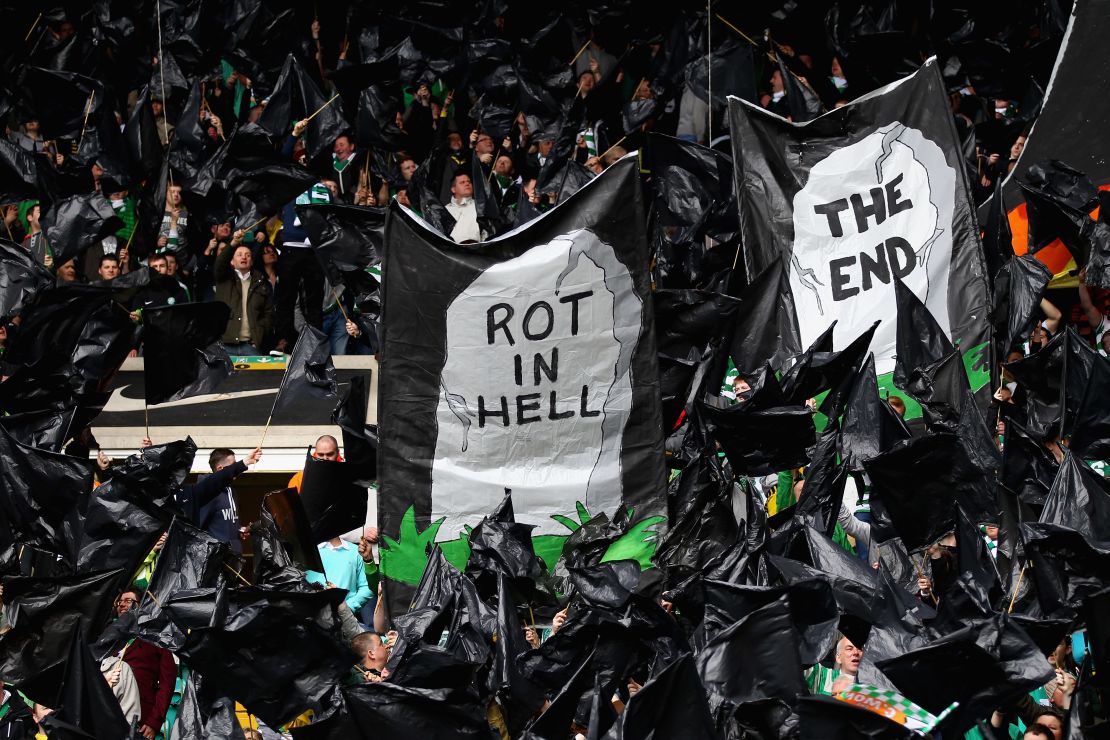
But dispute still remains as to whether Rangers are actually the same club. They’ve since made their way to the Scottish Championship, the division below the country’s top league.
Celtic fans – and those of many other Scottish teams – claim their great rivals died upon liquidation. They have gleefully taken to positing this opinion at games by passing coffins adorned with the initials R.F.C. backed up by songs pertaining to zombies.
A group of Celtic fans even went to the trouble of paying for a full page advert in a Sunday broadsheet last weekend to state their position on the “new Rangers club” and how the term Old Firm is now defunct.
Unsurprisingly, Rangers supporters see things differently. They state their team remains the same entity as it was the company which ran the club which was liquidated and not the club itself.
The head of the Scottish Professional Football League, Neil Doncaster, stated in a BBC interview earlier this year that he agrees with the latter assessment.
However, the organization declined the opportunity to respond to requests CNN made to its public relations representatives about clarifying whether this position related solely to SPFL rules or to the stricter court of Scots Law as well.
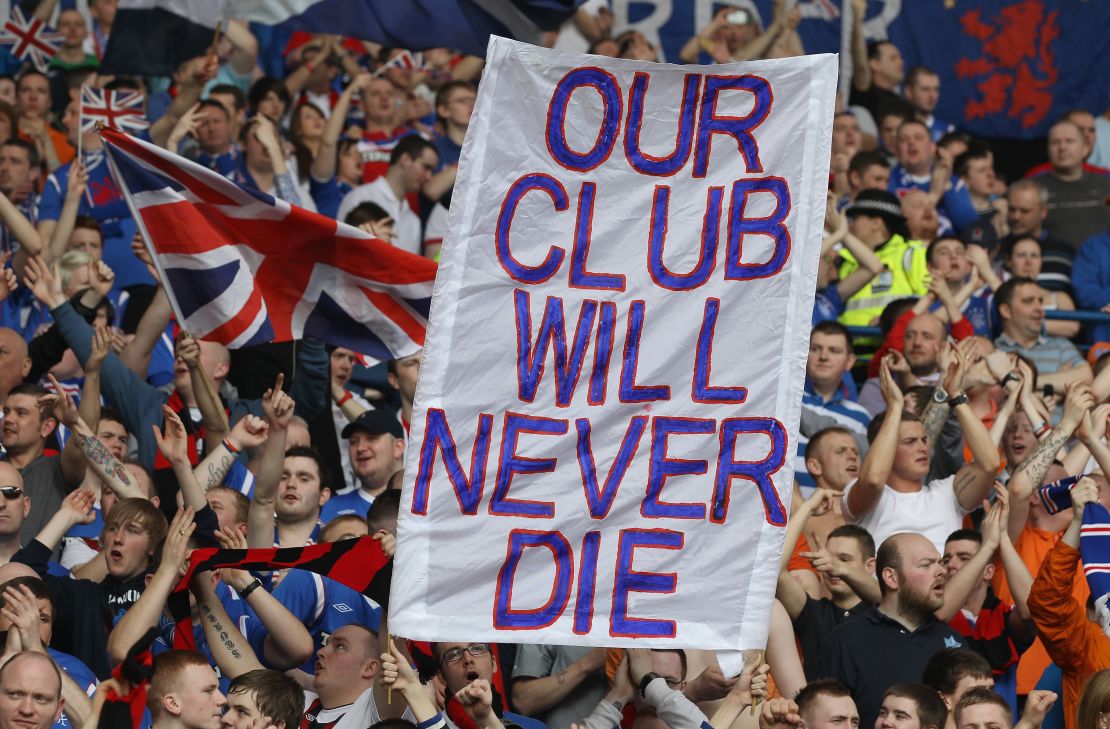
Tribal loyalties
To the players, at least, these dramas are a sideshow to matters on the field.
Some Celtic stars have openly confessed to missing the challenge of their great rivals.
When defender Charlie Mulgrew was asked in 2013 whether he would like Rangers back in the Scottish Premiership he responded with a gruff “aye” – a laconic affirmation of the positive in the Scottish lexicon.
These feelings are shared in a more expansive manner by former professionals who reminisce about the prestige and excitement the Old Firm games bring.
“There’s a level of tribalism” that you won’t see in any other game said ex-Celtic captain, Tom Boyd, adding: “There really is nothing like it.”
Former Rangers midfielder Ian McCall, agrees. Recalling his own experiences as a player he said “you only have to look at the buildup to this game to realize it’s different from all the others.”
“It takes over everything in the city. In workplaces, on the streets, in sports clubs, in restaurants. It’s all anybody talks about,” he added.
The buzz McCall describes has manifested itself in many ways over the years, not least in displays of colorful support and backing.
However this intensity has on occasion boiled over into something more sinister and crowd disturbances at Old Firm games can be traced back as far as the early years of the 20th Century.
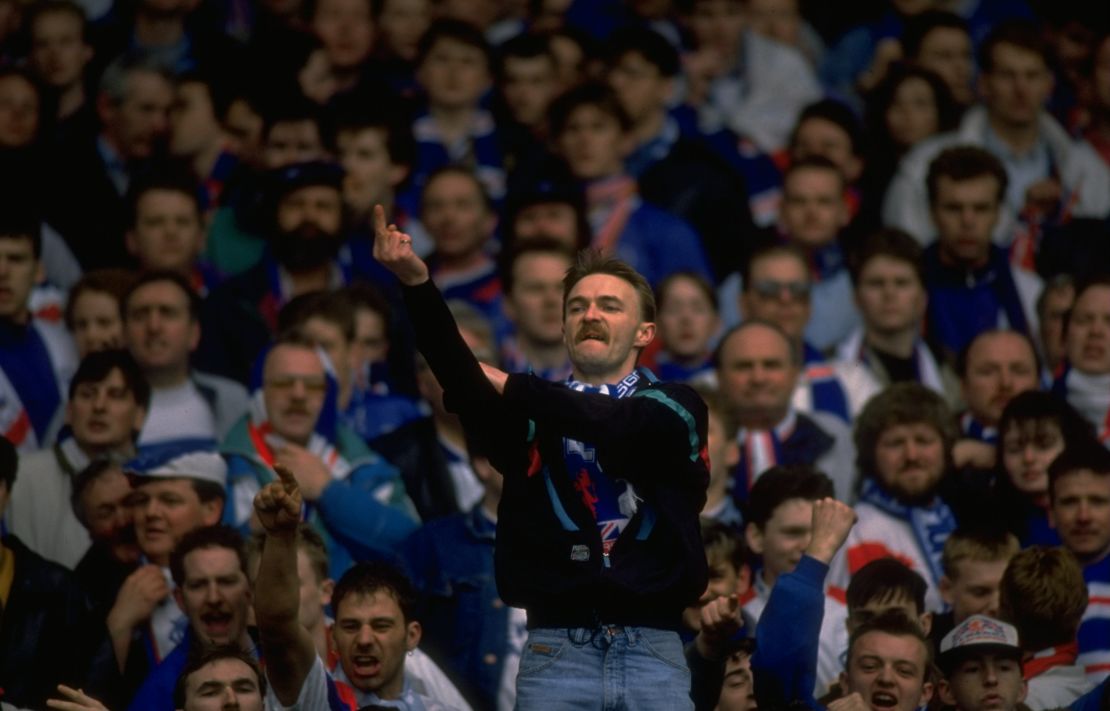
In more recent times, former Celtic manager Neil Lennon was sent a parcel bomb in 2011 while Rangers striker Nacho Novo claimed in 2008 that he received death threats.
Although the cliched characterization of Celtic being the Catholic team and Rangers their Protestant rivals may no longer reflect the wider realities of life in Glasgow, a hard core among each support still clings jealously to these identities when in the stadium.
Here, chants containing the lyrics “we’re up to our knees in Fenian (a group of nineteenth century Irish revolutionaries) blood, surrender or you’ll die” and “when I was just a lad like you, I joined the IRA” can still be heard on match days.
This phenomenon – the fan who espouses extreme political and religious opinions when at the match but not in other aspects of his or her daily life – has come to be known in Scotland as the 90-minute bigot.
As journalist and author Simon Kuper noted as far back as the early 1990s, although Old Firm fans seem to no longer believe in God they enjoy hating each other too much to stop.
The fear among many in the city is that this Sunday’s clash could see three years of pent up frustration and tension released with unpredictable results.
Glasgow’s Herald newspaper quoted an unnamed police source last week as saying there “could be more trouble than usual” at the game.
Financial challenge
Thankfully, however, the Glasgow derby is not all bile, bigotry and bitterness, as a number of fans and people involved in the Scottish game who spoke to CNN were quick to emphasize.
Hardly surprising given the fixture provides a welcome economic boost for the city as thousands descend on match day. A 2005 report from the University of Strathclyde estimated the Old Firm fixture was worth upwards of £120 million ($179 million) to the national economy every year.
Celtic CEO, Peter Lawwell, has acknowledged Rangers troubles have had a direct impact on his own club’s bottom line. While maintaining that Celtic have continued to flourish without their great rivals, Lawwell estimated in 2014 that Rangers absence has cost Celtic at least £10 million ($16 million) a year in revenue.
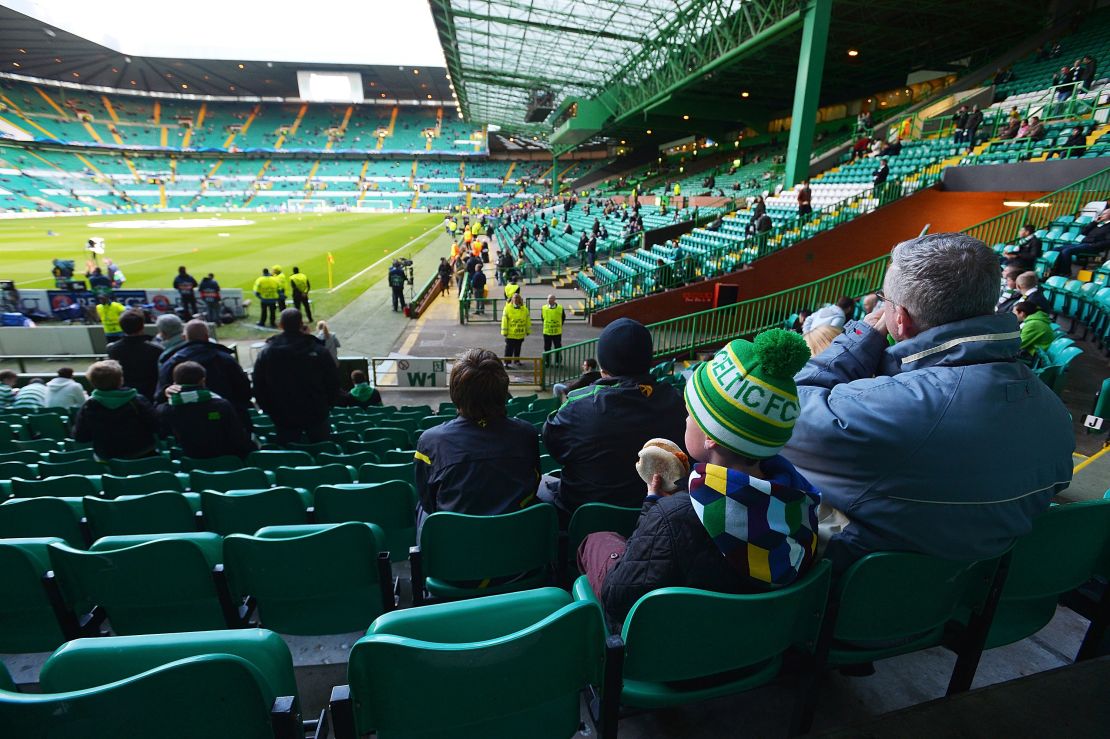
These trends have been reflected in the Scottish game’s own commercial struggles.
The country’s top division has been unable to secure a sponsor for the last two years while this season’s League Cup only attracted a backer when the Old Firm were paired together.
More positively though, Scottish football is currently far more unpredictable than at any time in the last 30 years.
Aberdeen and St Johnstone were triumphant in the cup competitions of 2014. The current league season, meanwhile, has seen Celtic challenged at the top of the Premiership by Dundee United, Inverness Caledonian Thistle and Aberdeen.
This newfound competitiveness has been welcomed by those who run the country’s national game.
But according to chief executive of the Scottish Football Association, Stewart Regan, the size and reputation of the Old Firm ensures it remains one of the country’s biggest selling points.
“From an economic point of view it’s important,” Regan said of the fixture. “For broadcasters we know how important … the Old Firm game is.”
Regan suggests a strong Rangers is key to the development of Scottish football as a whole.
“They’ve been through some difficult times but hopefully they’re on their way back. We would like to see a strong Scottish football with as many big city teams as we can,” he added.
Fanatical support
The idea of Scottish football needing Rangers (or Celtic for that matter) is an argument not all fans buy into. Many who don’t support the Old Firm believe the game would be more competitive and enjoyable without the sectarian baggage the Glasgow clubs bring.
Not that opinions like that will receive much attention come Sunday.
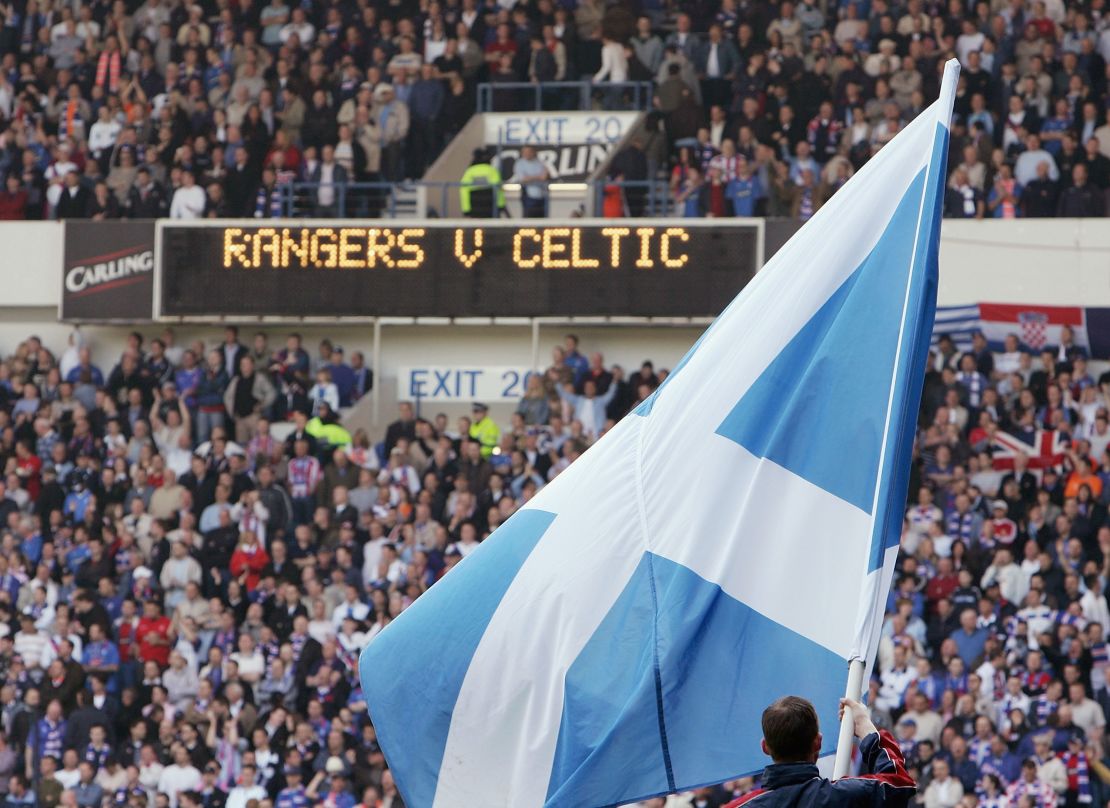
Hampden will be privy to the same passions, iconography and questionable back-catalogue of political and sectarian ditties that have always been part of Old Firm experience.
Although few supporters on either side will admit it, their anticipation of the fixture suggests they too have missed one another – as much for the opportunity of Schadenfreude it potentially offers.
This is a point recognized by Alasdair McKillop, co-editor of the Rangers Standard website and the book on Rangers fan culture in relation to the Scottish independence referendum, Born Under a Union Flag.
“I’m sure there will be fans on both sides that will chafe at the very idea of the two clubs being linked and they hate the term Old Firm,” McKillop said. “But I think there’s definitely an element of truth to that.”
A glance on social media sites such as Twitter only seems to reinforce this analysis.
Supporters of each side have continued to goad one another in spite of there being little sporting contact between the clubs in recent years.
One Celtic supporter who CNN spoke with last Wednesday before the club’s SPFL fixture with Motherwell described wanting to see Rangers abolished completely.
Although not unique, this isn’t typical of all fans.
Matt McGlone of the Celtic fanzine, the Alternative View, describes Rangers as “a tribute act” due to their liquidation. He believes Celtic don’t need Rangers but concedes the rivalry between supporters is still there.
“It’s a particularly high buzz beating Rangers that lasts for days,” he said.
“Some fans say we don’t need them and I can understand that point of view … but maybe (these) fans will alter their opinion once we beat them (on Sunday).”
Whether Celtic supporters of this mindset would admit to that is another matter.
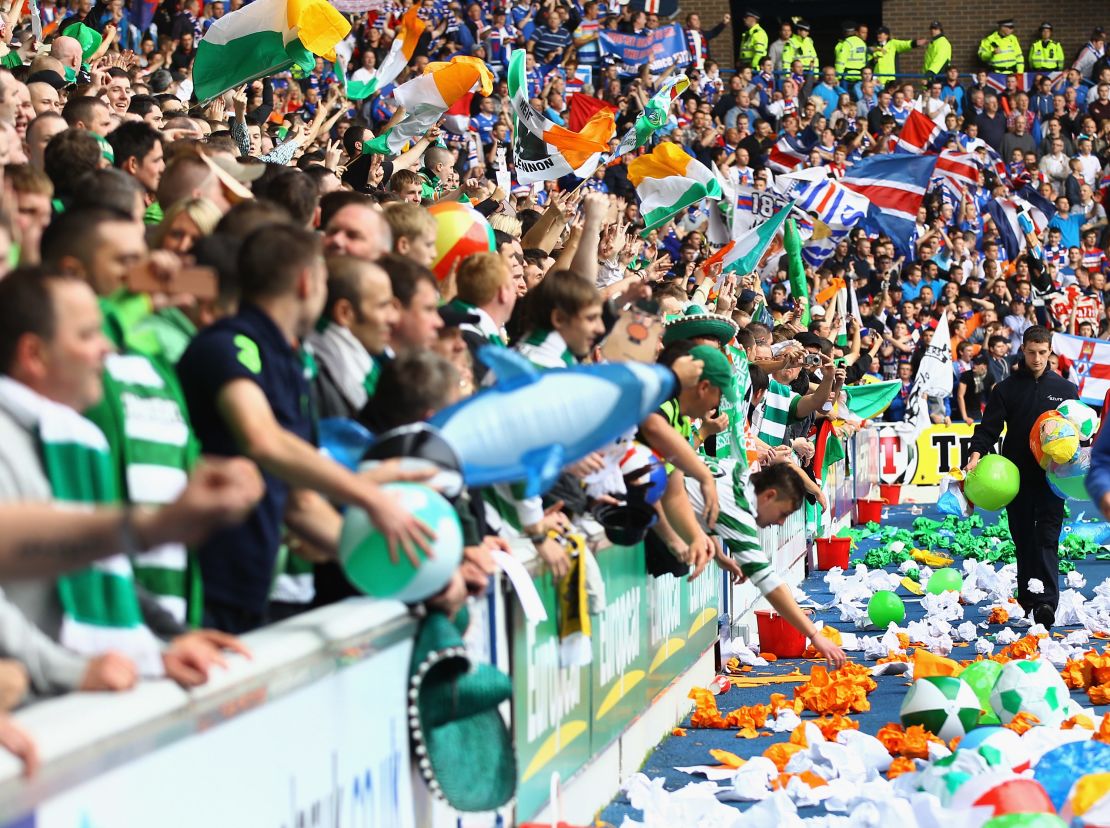
For prominent Rangers fans like Ricki Neill, director of supporters group Rangers First, Celtic fans who say they don’t care about the rivalry are not being honest.
“Any Celtic fan that says they don’t want Rangers back, I think they’re lying.”
He added, “I think both Celtic and Rangers need each other … the (Premiership) has been boring without us”
Win or lose, new club or same club, the bickering and one-upmanship between these two clubs and sets of supporters will continue well beyond Sunday.
As always in Glasgow, some may choose to recognize this while others may not.
Read: Fear and loathing in the dressing room
Read: Football in the land of extortion
Read: They shall not pass: Defiant Aberdeen keeps the world at bay
Lara Baldesarra and Aleks Klosok contributed to this report












